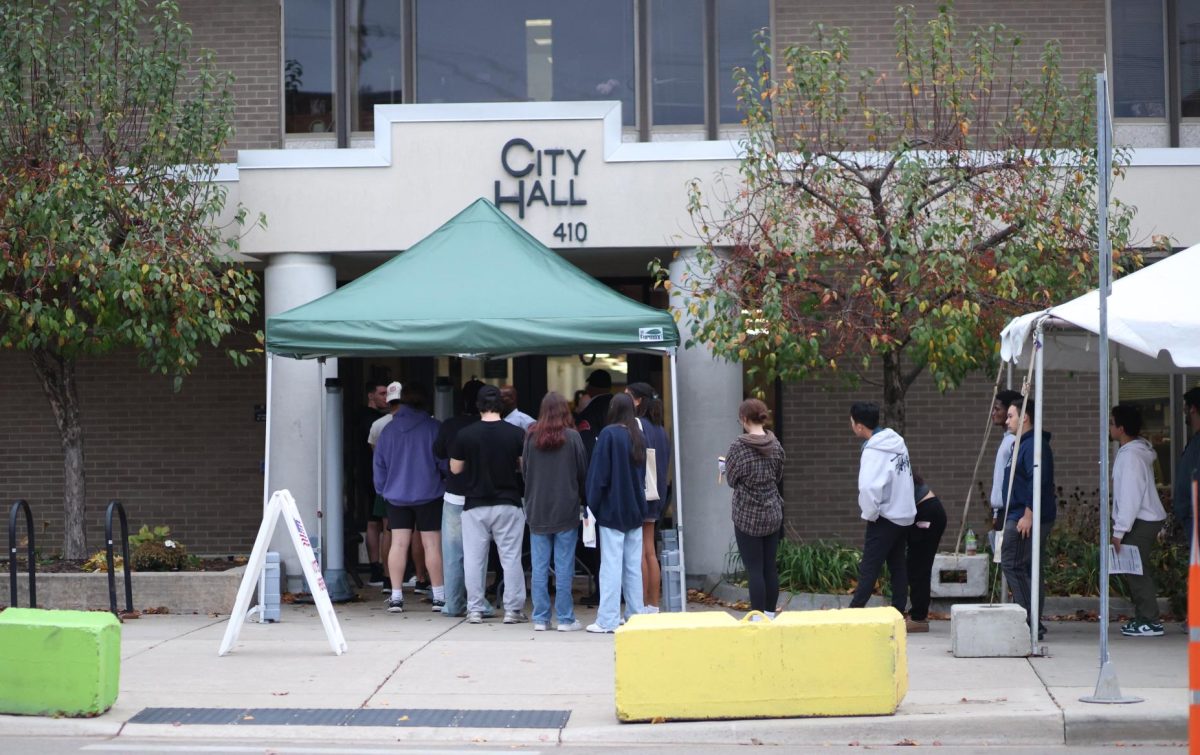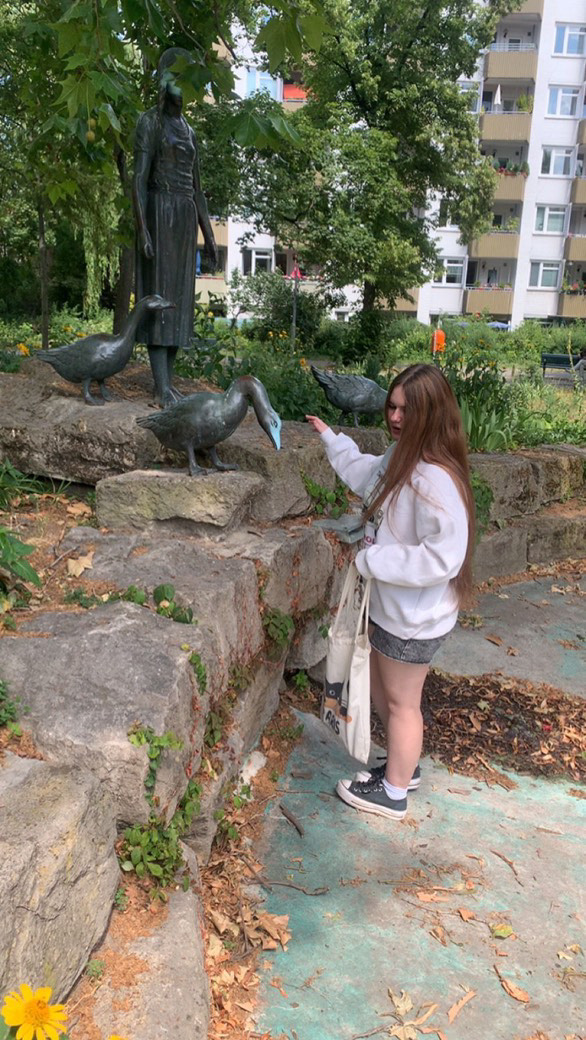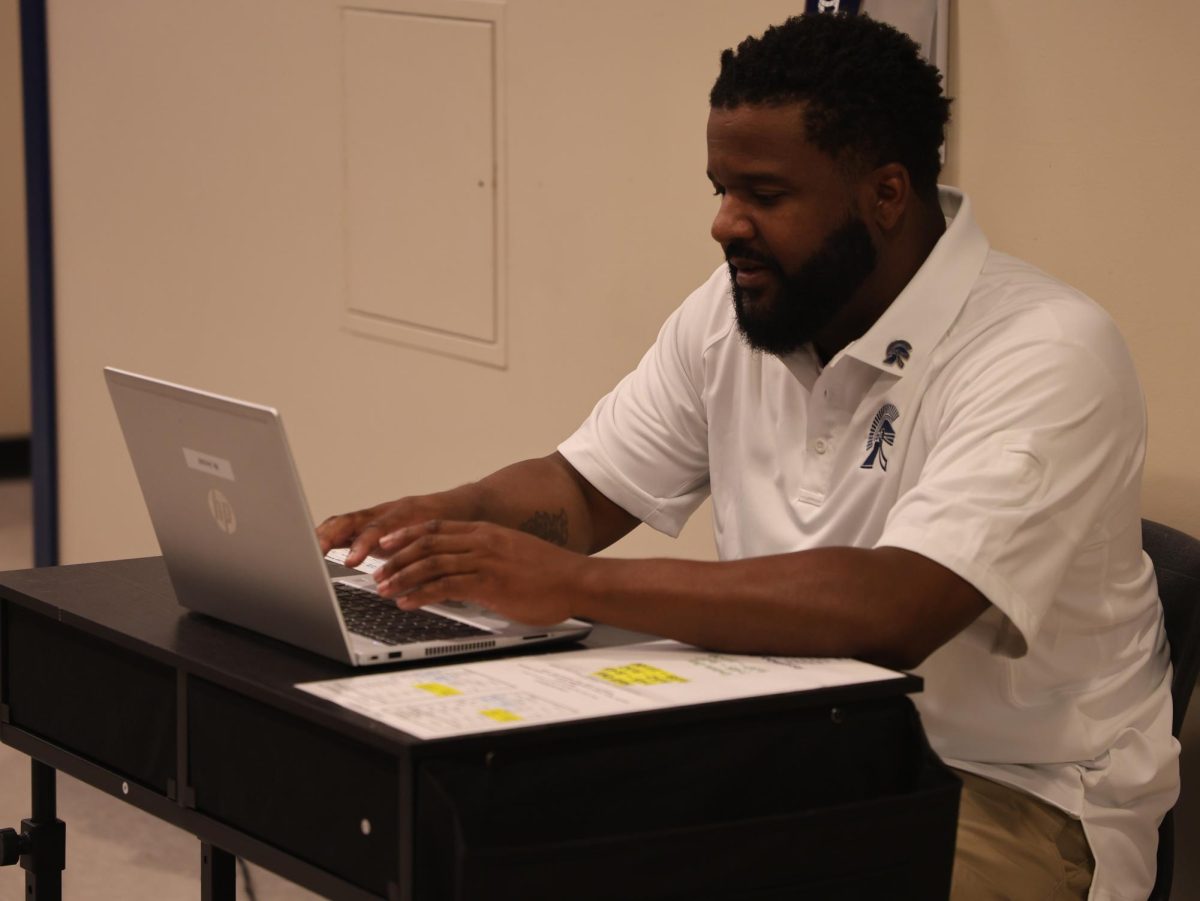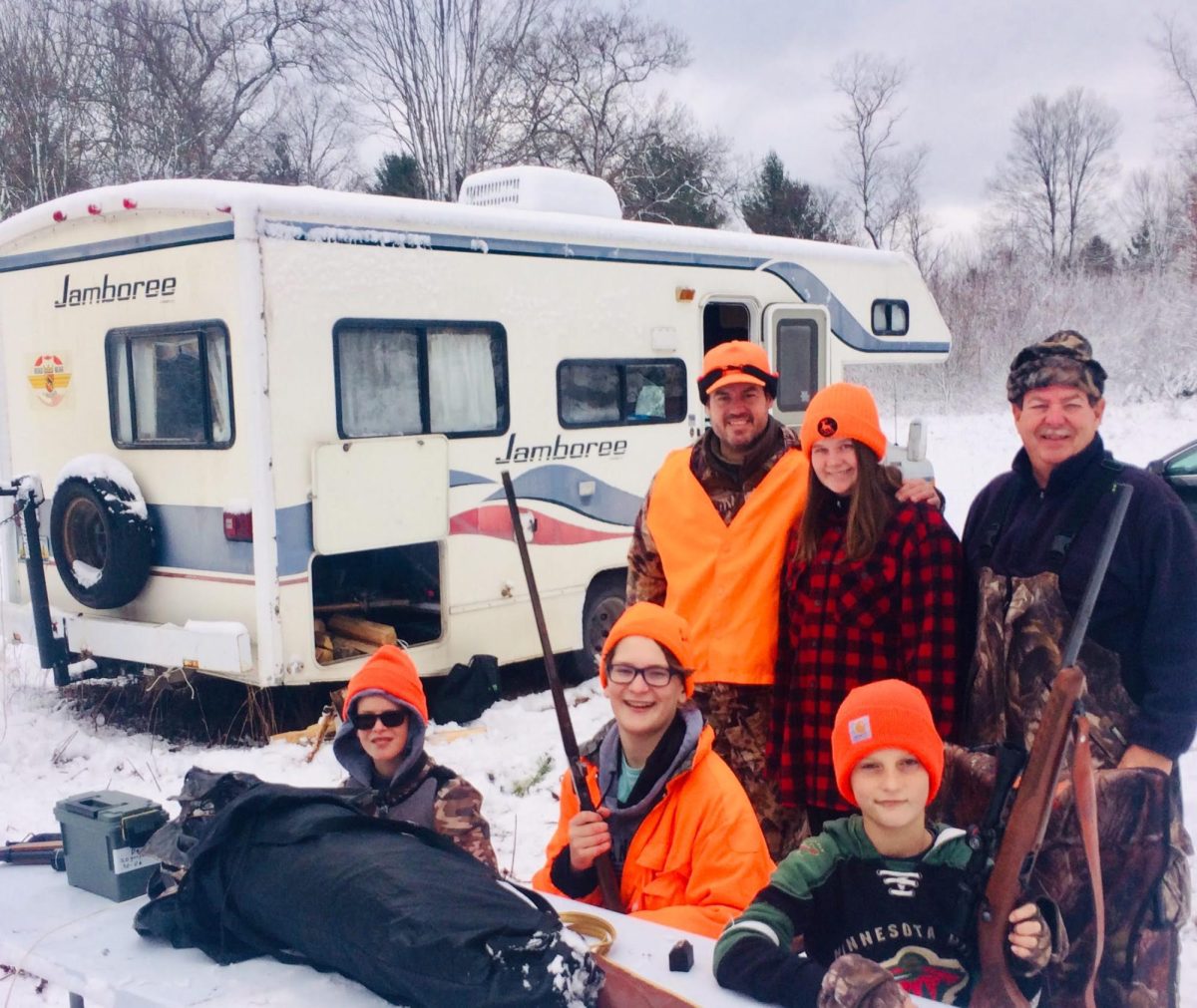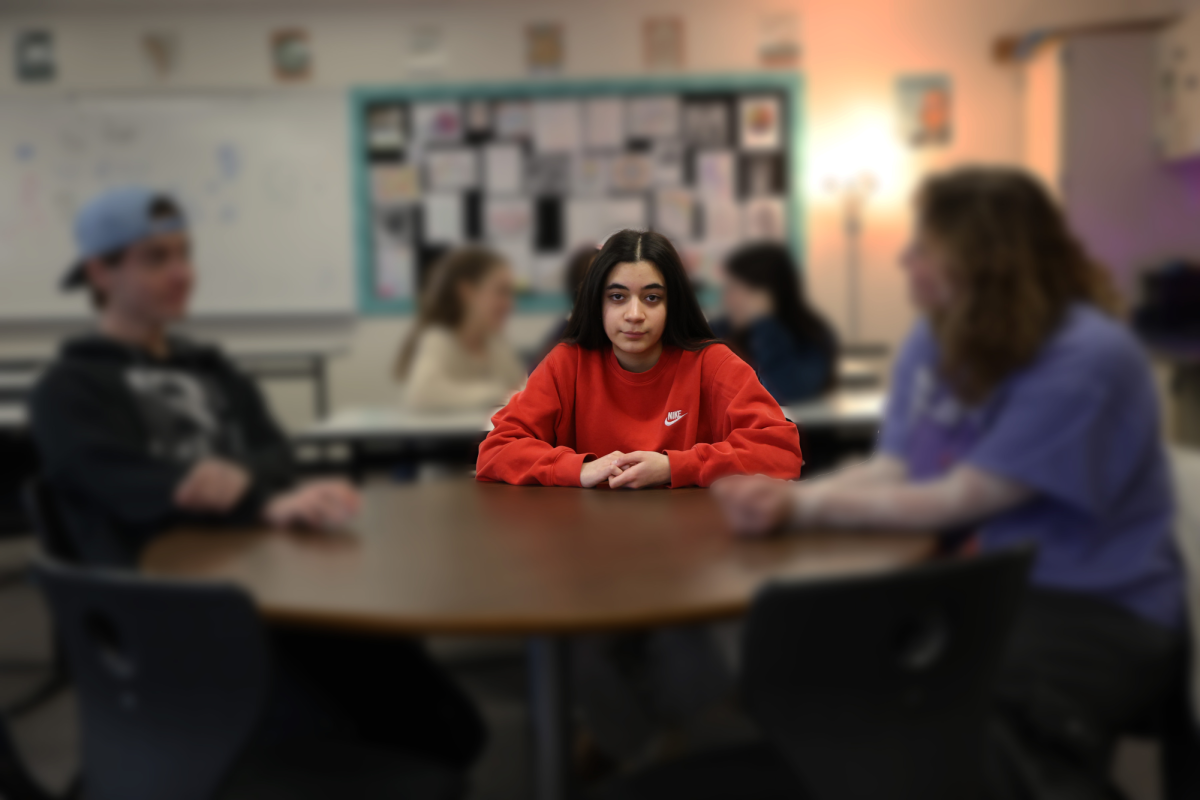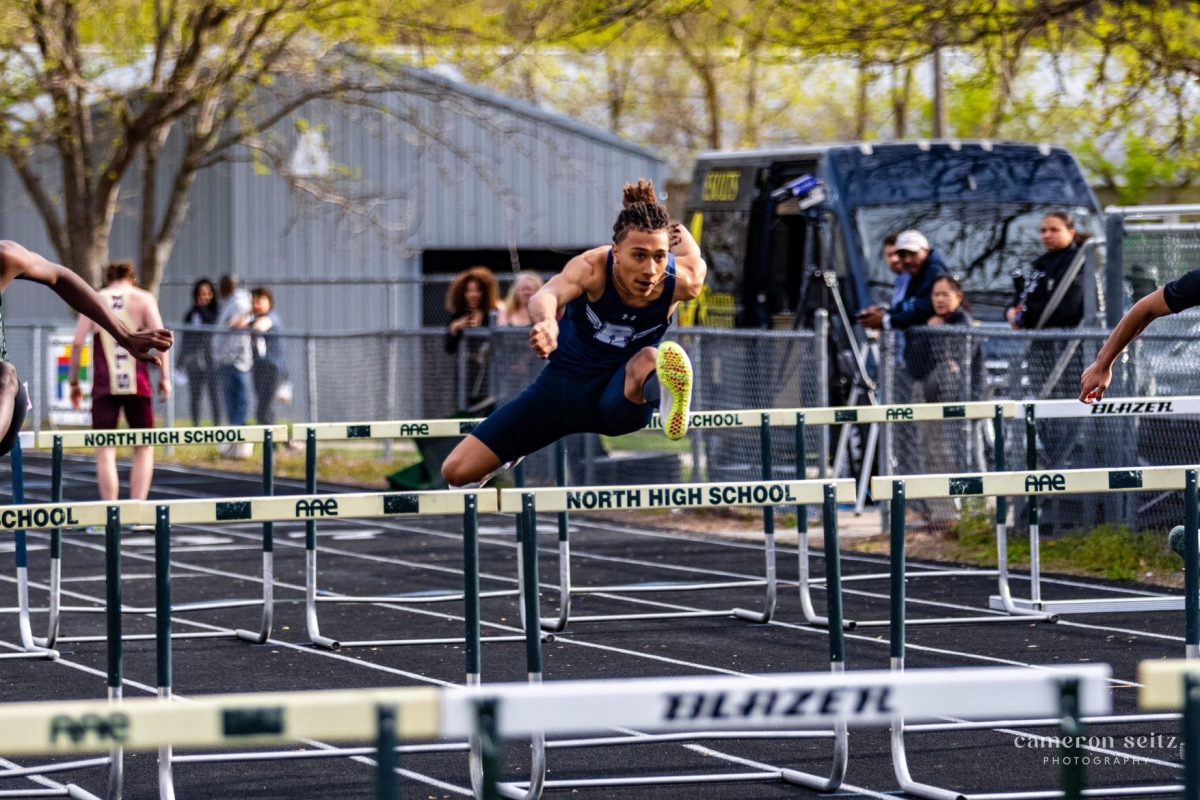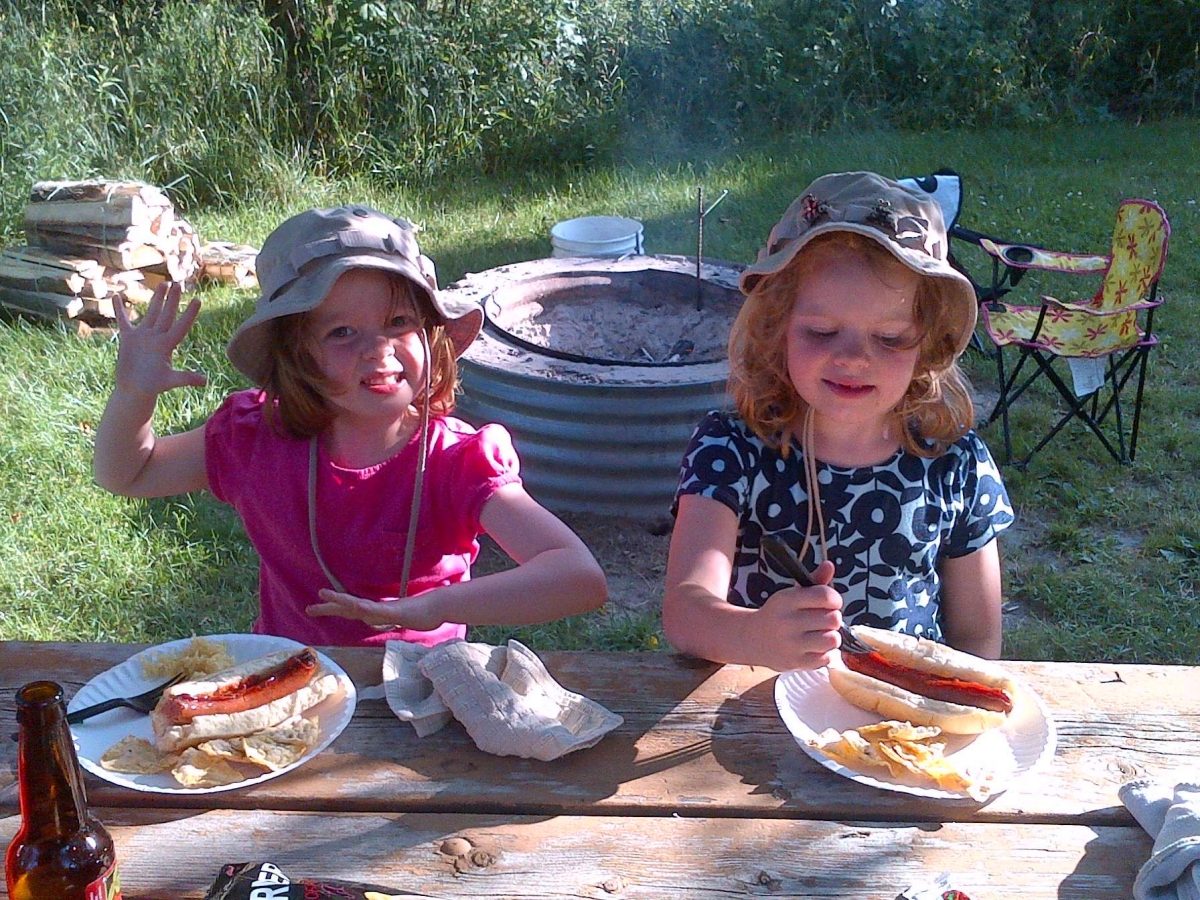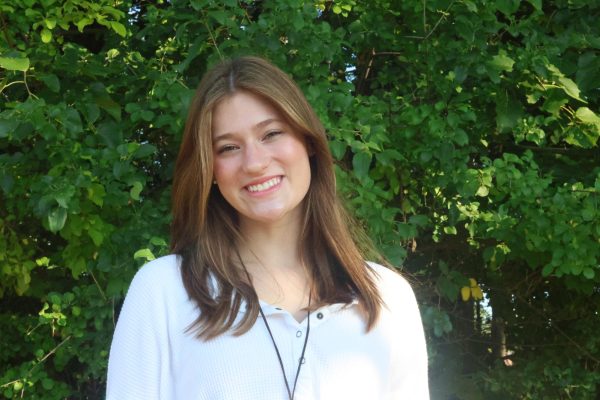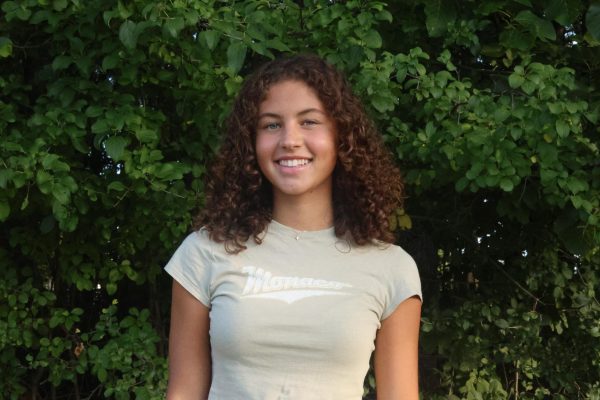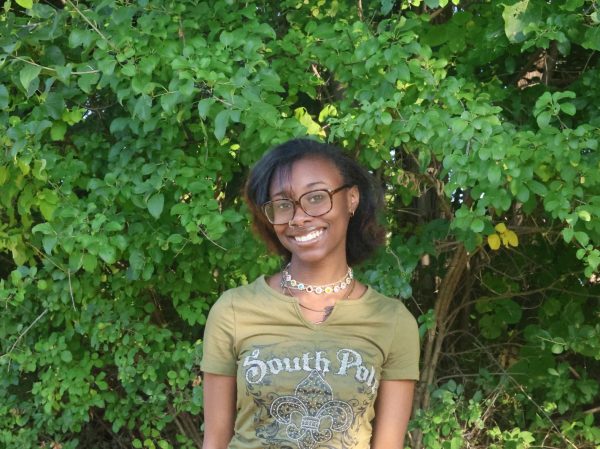Politics are everywhere, and they impact our lives daily. If you approach any student at our school and ask them about their political views, they could probably tell you at least one thing they find important. But where do these views come from? Most students can trace their political awakening to family conversations, social media or the news, but some recall specific moments that inspired their beliefs. With the election approaching, we thought it would be important to explore what shapes student’s political beliefs—and which influences matter most.
Growing up in Activism
It was a scorching August afternoon, and Maggie Walters (11) waited eagerly with her family, surrounded by a sea of supporters decked out in blue and pink—blue for presidential candidate Kamala Harris, and pink for Planned Parenthood. Although there were countless speakers at the Kamala Harris rally in Detroit this summer, four of Harris’s words echoed in Walters’ mind long after the event.
“We’re not going back.”
“It was the first time I had heard anything about that quote,” Walters said. “It really stuck with me considering we’re fighting against going back in time with situations like reproductive rights.”
Growing up in a liberal family, Walters became politically aware at a young age. Her first political event was a march for women’s rights on Michigan State’s campus, and she’s been attending marches, rallies and protests with her family ever since.
“It was nice to learn and grasp more of an understanding of politics in person rather than watching it on TV,” Walters said.
As Walters’ understanding of politics grew, so did her frustration with the injustices she saw around her. Soon, the family outings to events she once saw as fun activities became her platforms for change.
“I remember anger,” Walters said, “I didn’t really understand how people let others suffer when they know something is hurting someone so badly. I know that one person can’t do something for everyone, but I knew we could really create change that would benefit others.”
Since then, Walters has been active in the community, attending as many events as she can to raise awareness for the things she believes in. From Black Lives Matter (BLM) protests and Women’s Marches to Hillary Clinton rallies in 2016, Walters has immersed herself in activism and made political engagement a central part of her life.
“I think it’s important to get involved, because political topics are personal, even if we claim they’re not, they affect us,” Walters said, “Getting educated and being a part of the change you want to see is what’s right.”
Turning Pages, Changing Perspectives
Charlie Sparrow (12) stared wide-eyed at the pages of his assigned reading for eighth-grade English class. The book was called “Swing,” a modern-day coming-of-age novel by Kwame Alexander that dives deep into relationships, perseverance and the harsh realities of racism and police brutality. As Sparrow read the scene where the main character’s best friend is gunned down by the police, he felt something shift.
“At that moment I was like, okay, I need to rethink everything,” Sparrow said.
It was 2020, and amid the COVID-19 pandemic, rising election tensions and
BLM movement, Sparrow found himself too preoccupied to fully grasp the world around him. Reading “Swing” became a wake-up call that acts of racially motivated violence were occurring in real life.
“I was generally unaware,” Sparrow said. “I was seeing things happen around me, but I wasn’t thinking deeply about it or questioning anything. After reading that, I started to become conscious of the stuff that was actually happening in our world, and think about the broader picture.”
This experience led Sparrow to engage more in online activism. He began using social media and news outlets to learn about issues like the pandemic and the BLM movement, which further solidified his political values centered around equality and representation.
“We’ve progressed as a society, but some of the progressions have only benefited certain groups of people,” Sparrow said. “I feel like we have all these tools available to us, so why are some people going hungry when everyone can eat? Why are some people not getting health care when everyone should? I feel like government and society as a whole should do more to make sure that everyone has the tools available to them to succeed.”
The upcoming election holds particular significance for Sparrow because he’ll be able to vote for the candidate who best aligns with these values. This new ability makes the election feel meaningful to him, as voting allows him to be part of a push for positive change—and he encourages his peers to view their votes as a way to shape their futures, too.
“My vote is like one in a million, but it’s a collective group. If everyone votes, something will change,” Sparrow said. “You gotta have faith and belief in our system and that you can change something, even if the numbers and everything else kind of says you can’t. You gotta have hope that you can.”
Seeing both sides
The fear that comes with uncertainty is a feeling that Ahnalicia Ferris-Vasquez (12) is no stranger to. Growing up constantly moving around the south side of Lansing introduced her to a life of always having to be on high alert.
“Living on the south side opens up a lot of things,” Ferris-Vasquez said. “You see things, you hear things and you watch things. Growing up in a situation where you have to be aware of your surroundings gives you an inside perspective on what’s going on in America.”
Her experiences growing up have played a major role in her political values today. Her family struggled financially, so she looks for candidates with plans to improve the economy. As a child, she witnessed a gun being unloaded in front of her, which showed the importance of gun safety.
“Politicians don’t come to South Lansing to hold rallies. They don’t see some girl on the side of the road who used to be someone’s baby, sitting there suffering,” Ferris-Vasquez said. “The fact that I’ve seen that, experienced that and now I’m here in East Lansing, having moved further up the line, I see a different dynamic and different problems. Being able to see both sides helps me form my own opinions.”
Though both presidential candidates align with her values, Ferris-Vasquez finds that Donald Trump’s handling of the economy resonates with her more.
“I saw that someone could provide me with a stable future,” Ferris-Vasquez said. “A career is big for me; family is big—I like to provide for my family. I’m a business-minded person, and Trump is a businessman, so he understands that mindset.”
Though Ferris-Vasquez believes there are some downsides to Trump as a candidate, she feels it is more important to view him through a political lens rather than a personal one.
“I do not like Trump as a person at all, and I’ll say that flat out because everybody does things they shouldn’t,” Ferris-Vasquez said. “Now, whether we hold it against them or not is a personal decision. I put all things aside and look at what he can do for me.”
In her family, it was normal to speak freely about the political landscape and share thoughts on political issues. Open discussions, listening to each other’s thoughts and taking time to consider everyone’s opinions created an environment in which Ferris-Vasquez felt comfortable exploring new ideas and evaluating issues that held deep meaning for her.
“I feel like politics can divide a family,” Ferris-Vasquez said. “My family doesn’t become divided when we talk about politics because we respect that everybody has an opinion, and if you don’t like it, get over it.”
Ferris-Vasquez identifies as independent and considers what candidates stand for rather than focusing on party affiliation. She believes in staying informed by consulting a variety of sources, including opposing viewpoints such as CNN and Fox News.
“I try to know everything, and be aware to create my own opinions,” Ferris-Vasquez said. “It’s not about who you’re voting for; it’s about what you’re voting for.”
The election that changed everything: Our personal narrative of the 2016 election
The clock hits 2:30, and students flood out of the classrooms in my elementary school. As I weave through the hallways, I overhear snippets of conversation among teachers, administrators and parents. “I’d rather move to Canada than vote for him,” “They’re both so awful, I don’t know what to think,” and “I just don’t think a woman should be president.” Even though I’m only a fourth grader, I know exactly what they’re talking about.
The 2016 election.
The 2016 election marked a major shift in the political climate, sparking a more intense divide between parties. It felt like politics suddenly became deeply personal. In previous years, people seemed more accepting of differing viewpoints. But now, there was a sense of anger—perhaps even hatred—emerging. For many young people, including us, this election was our first introduction to politics. We overheard our parents discussing their anxiety over the election, and their disgust with Trump. We even witnessed political debates dividing our extended family. In 2012, we gathered around the TV, hoping Obama would win. In 2016, that hope had transformed into a genuine fear for our future. We were only in fourth grade, yet somehow we felt that the results of this election could impact our lives in profound ways.
The morning after the election, my usually noisy household was eerily quiet. My mom stayed in bed, and my dad came upstairs to gently tell us that the results were not what we had hoped for. I felt a pit in my stomach. Just three months earlier, I didn’t know the first thing about politics, but now, I felt an unsettling awareness of which of my rights might be at risk. At school, my classmates buzzed about the election. Some had woken up to overjoyed parents, while others shared my confusion and disappointment.
This day was a wake-up call for so many of us. Whether our teachers discussed it in class or not, nearly everyone seemed to have an opinion. Yet, because we lacked a comprehensive understanding of politics, most of our views mirrored those of our parents. Over the years, some of the beliefs our peers held on Nov. 9, 2016, no longer align with the ideas they now share or the politicians they support on social media. As we grow, it’s natural to stray from believing everything the adults in our lives tell us and form our own opinions.
Looking back, not everything believed in 2016 has stayed with us. Yet one thing is certain: that election left a permanent mark, shaping our first impressions of the American political landscape.
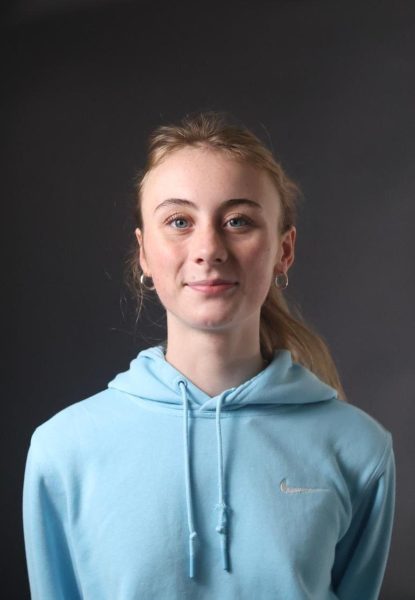
Harper Mullaney (12)
Growing up in a Republican family with strong opinions meant that Harper Mullaney (12) drew many of her early beliefs from her parents. However, after realizing that Donald Trump wasn’t the person she thought he was, she was inspired to rethink her values. By using her morals and experiences as a baseline, she has found what is important to her in politics.
“I did some analysis of my own morals because that’s what I base my political values on, my morals, and what genuinely seems like a realistic expectation. I’m very much in the middle because I agree with some things far right and some things far left. For example, abortion freedom and women’s healthcare in general, is very important to me, and so I lean more far left that way. But the right side’s policies definitely helped my parents’ small businesses. During COVID-19, under Trump’s administration, my parents’ businesses truly flourished, and my mom actually started hers in 2020.”
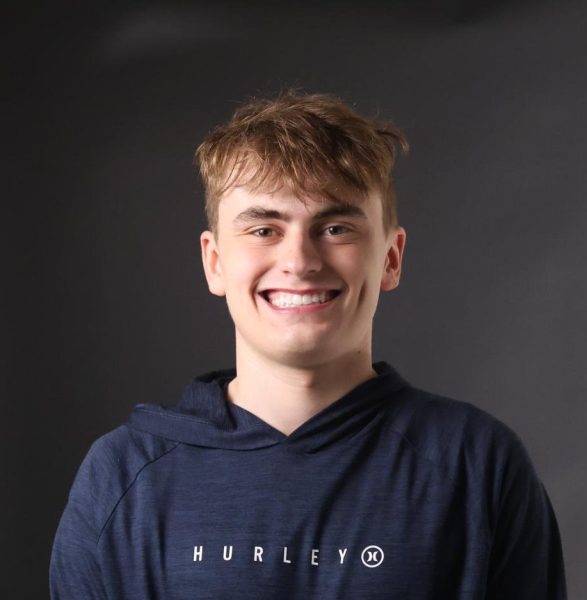
Carter Oleksyk (11)
“I grew up in a very agnostic, atheist household, but then I started researching religion, and currently I’m in the process of converting to Catholicism. That’s where I draw the meaning and value of life. I focus on what is helping people to have a better life or who is giving people the chance to even have life in general. I think this applies to abortion and more, like the anti-death penalty. They should be able to live their lives out in prison. Maybe they can change as a person, maybe not, but they deserve a chance.”
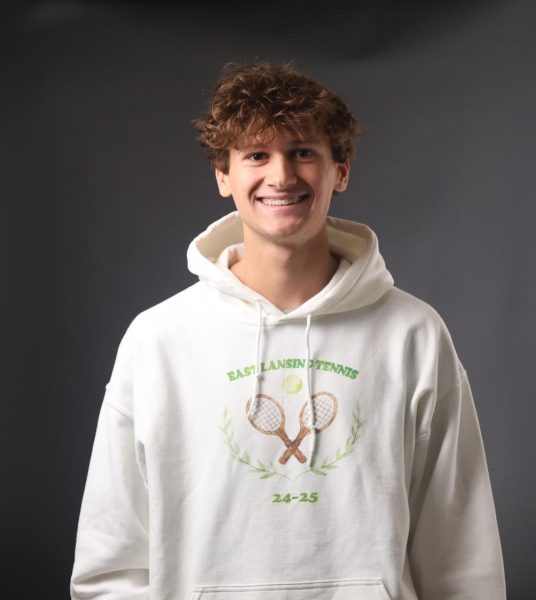
JD Hawthorne (12)
“I was never really interested in politics until a couple of years ago when I realized that I would get to vote when I was 18. I think I realized that it would affect me and the people around me, especially those I care about, based on who was elected president.”



